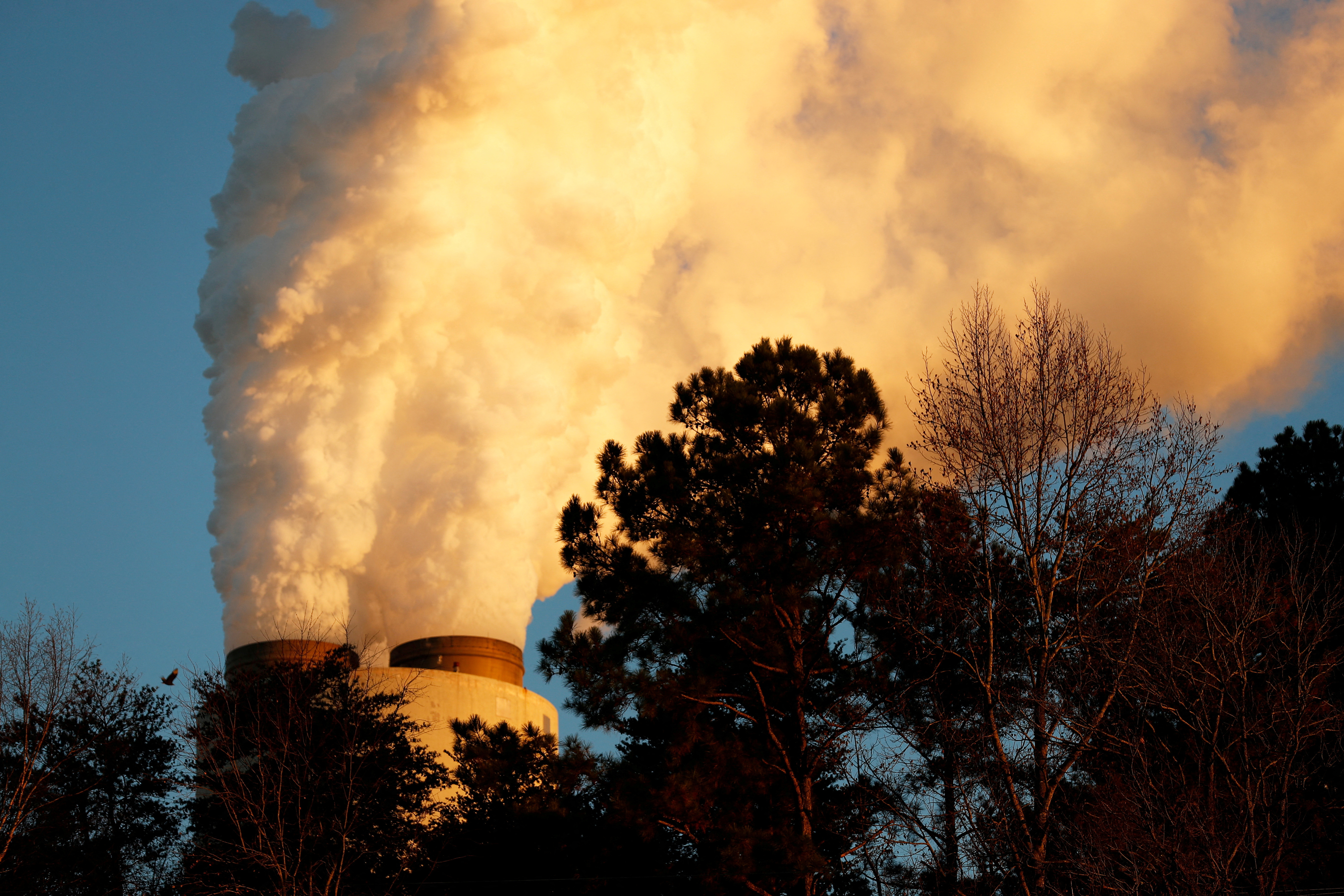[ad_1]

Steam rises from Duke Energy’s Marshall Power Plant in Sherrills Ford, North Carolina, U.S. November 29, 2018. REUTERS/Chris Keane/File picture Acquire Licensing Rights
NEW DELHI, Oct 13 (Reuters) – India needs to push developed nations to change into carbon destructive somewhat than carbon impartial by 2050, arguing that may enable rising market economies extra time to make use of fossil fuels for growth wants, two Indian authorities sources stated.
India, which is resisting calls to decide to a deadline for phasing out its personal use of coal and different fossil fuels, is ready to make its proposal on the COP28 local weather summit in Dubai later this 12 months.
“The rich countries should become net negative emitters before 2050 to enable the world to achieve the target of global net-zero by that year while allowing developing nations to use the available natural resources for growth,” one of many authorities officers stated.
Developed international locations together with the United States, Britain, Canada and Japan are concentrating on web zero by 2050. China has dedicated to web zero by 2060 whereas India has dedicated to reaching that objective by 2070.
Net zero or carbon neutrality means the quantity of carbon dioxide launched into the ambiance by any exercise is offset by an extra exercise to take away an equal quantity. Carbon destructive is a step ahead and requires a rustic to take away extra CO2 from the ambiance than it emits.
COP28 discussions are happening at a time when excessive weather-related occasions have result in heatwaves and erratic monsoons and scientists have known as for instant motion.
India intends to proceed resisting developed economies’ push to repair a deadline for fossil gasoline part down and as an alternative favours shifting focus to decreasing general carbon emissions by “abatement and mitigation technologies,” the 2 officers and a 3rd authorities official stated.
None of the officers wished to be named because the discussions are non-public and a ultimate stance has not been firmed up.
India’s atmosphere, exterior affairs and prime minister’s places of work didn’t reply to emails searching for remark.
India has dedicated to working half of its put in energy capability with non-fossil sources and chopping the ratio of greenhouse emissions to gross home product to 45% of its 2005 degree by 2030.
At a summit in New Delhi final month G20 international locations accepted the necessity to phase-down unabated coal energy, however stopped wanting setting a timeline or emission discount targets.
The declaration was a step ahead in local weather negotiations, with the 20 international locations accounting for over 80% of worldwide emissions agreeing to part down coal for the primary time.
The choice was a shock as coal-dependent economies, together with China, India and Indonesia, have in previous negotiations resisted talks of exiting the black gasoline and requested developed economies to as an alternative finish their use of gasoline.
“It’s just not feasible for India to commit to a timeline to end coal. Coal is going to be the country’s mainstay in the near future even if storage and abatement technologies become viable in a hypothetic situation,” one other official stated.
Data reveals that thermal energy stations present 73% of electrical energy consumed in India, although the nation has elevated its non-fossil capability to 44% of its complete put in energy era capability.
COP28 is scheduled to happen between Nov. 30 and Dec. 12.
Reporting by Sarita Chaganti Singh; Editing by Susan Fenton
Our Standards: The Thomson Reuters Trust Principles.
[adinserter block=”4″]
[ad_2]
Source link